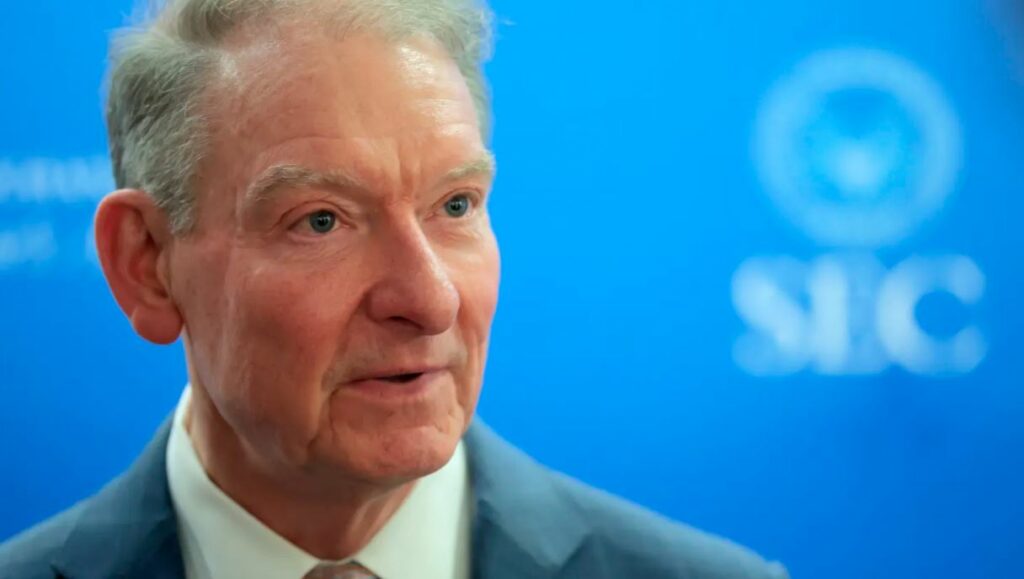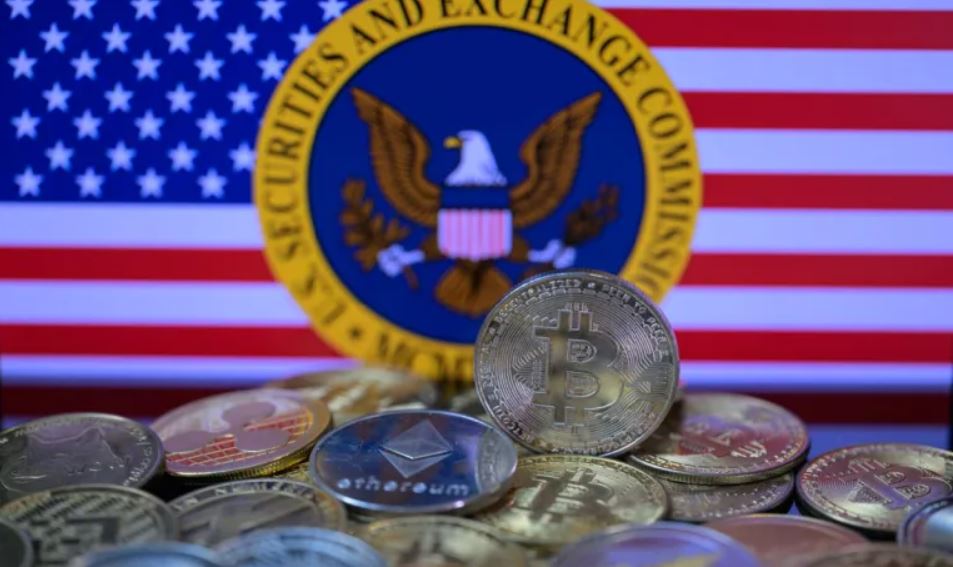
The crypto industry has long felt the pressure of heavy regulations and slow progress. On Friday, April 25, U.S. Securities and Exchange Commission (SEC) Chair Paul Atkins publicly acknowledged that crypto innovation has been “stifled” in recent years. Speaking at a half-day roundtable in Washington, D.C., Atkins said the market urgently needs changes to the current regulatory approach.
This event marked a turning point. It was organized by the SEC’s newly formed Crypto Task Force and brought together major players from the crypto world, including legal experts, executives, and SEC commissioners. The session focused heavily on the issue of custody—the way digital assets are stored and protected.

A Shift in Tone
SEC Chair Atkins shared the stage with fellow SEC Commissioners Caroline Crenshaw, Mark Uyeda, and Hester Peirce. The group made it clear they want to change how the U.S. Securities and Exchange Commission interacts with crypto companies. Instead of being seen as a strict enforcer, it now wants to collaborate with the industry.
Atkins told reporters that he is open to a broad reassessment of crypto rules. “We have, I think, a large gambit of ability to operate,” he said. “It’s always good to have Congress’s input, and if there’s a statute to back up what we’re doing, then all the better — but I think we have ample room to maneuver.”
This new tone comes just weeks after the SEC officially ended its long-running lawsuit against Ripple. That legal battle lasted four years and had become symbolic of the tense relationship between regulators and crypto firms.
Trump’s Role in the Crypto Shift
The roundtable discussion took place under a political backdrop that favors crypto. President Donald Trump, re-elected in November, has embraced the industry. During the campaign, crypto firms poured money into his victory efforts, backing both Trump and other pro-crypto congressional candidates.
Since returning to office, Trump has taken major steps to support the industry. He signed an executive order to create a strategic bitcoin reserve. He also pardoned three co-founders of the BitMEX exchange, along with Ross Ulbricht, founder of the infamous Silk Road marketplace.
These moves have been widely viewed as efforts to reward the crypto industry for its political and financial support.
Major SEC Reversals
The SEC has also reversed key policies that were seen as anti-crypto. In January 2025, it rescinded Staff Accounting Bulletin (SAB) 121. This rule, introduced by former Chair Gary Gensler, had treated crypto assets held by banks as liabilities. Many industry leaders argued it discouraged institutional adoption of crypto.
Commissioner Hester Peirce celebrated the rollback. On X (formerly Twitter), she wrote, “Bye, bye SAB 121! It’s not been fun.”
Another major change came in February when the SEC clarified that most meme coins would not be considered securities under U.S. federal law. This decision had major financial implications, especially for the president himself.

Trump’s Meme Coin Boom
President Trump’s own meme coin, $TRUMP, launched just before his January inauguration. It quickly gained popularity and now boasts a market cap of approximately $2.7 billion. According to the project’s website, 80% of the token supply is controlled by the Trump Organization and its affiliates.
This situation has raised concerns about conflicts of interest. When asked about the president’s involvement in crypto, Paul Atkins simply said, “I have no comment on any of that.”
Crypto Custody in Focus
The roundtable included executives from major crypto custody firms: Anchorage Digital Bank, Kraken, BitGo, Fireblocks, Exodus, Fidelity Digital Assets, and Copper Technologies. They discussed the legal and operational challenges of offering safe crypto custody solutions that comply with U.S. securities laws.
Custody is a major concern in the crypto space. Investors want to know their assets are safe. Some prefer cold storage (hardware wallets), while others use hot wallets provided by crypto exchanges. Without clear guidance from regulators, firms struggle to know which methods are fully legal.
“There are important differences in how qualified custodians handle certain crypto assets,” Peirce said. “But for others, self-custody might actually be the safer choice.”
The SEC is now reviewing a controversial custody rule first introduced under Gary Gensler. Many experts argue that the rule made it almost impossible for crypto firms to comply. Though the rule has stalled, Friday’s roundtable shows the SEC wants to find a better path forward.
Balancing Innovation and Protection
Despite the more friendly tone, there are still tensions. Regulators must protect investors, but they also don’t want to block new technologies.
Peirce summed up the dilemma well: “The Commission must grapple with these issues. If we fail to do so, we prevent regulated entities from serving their customers.”
Paul Atkins echoed her concerns. He said the U.S. will continue to take action against foreign companies that break American laws. He even warned that Chinese firms could be delisted if they fail to comply.
But overall, the message was clear: the SEC wants to change how it handles crypto. Instead of resisting the future, it wants to be part of building it.
Friday’s event was more than just another regulatory meeting. It marked a shift in how Washington views crypto. With Trump back in office, industry leaders now have an ally in the White House. The SEC is responding with a more open and flexible approach.
Crypto leaders hope this new attitude leads to clearer rules and better cooperation. After years of legal battles, many believe it’s time to move forward.
As Commissioner Peirce said, “We have to find solutions. If we don’t, innovation will continue to leave our shores.”























